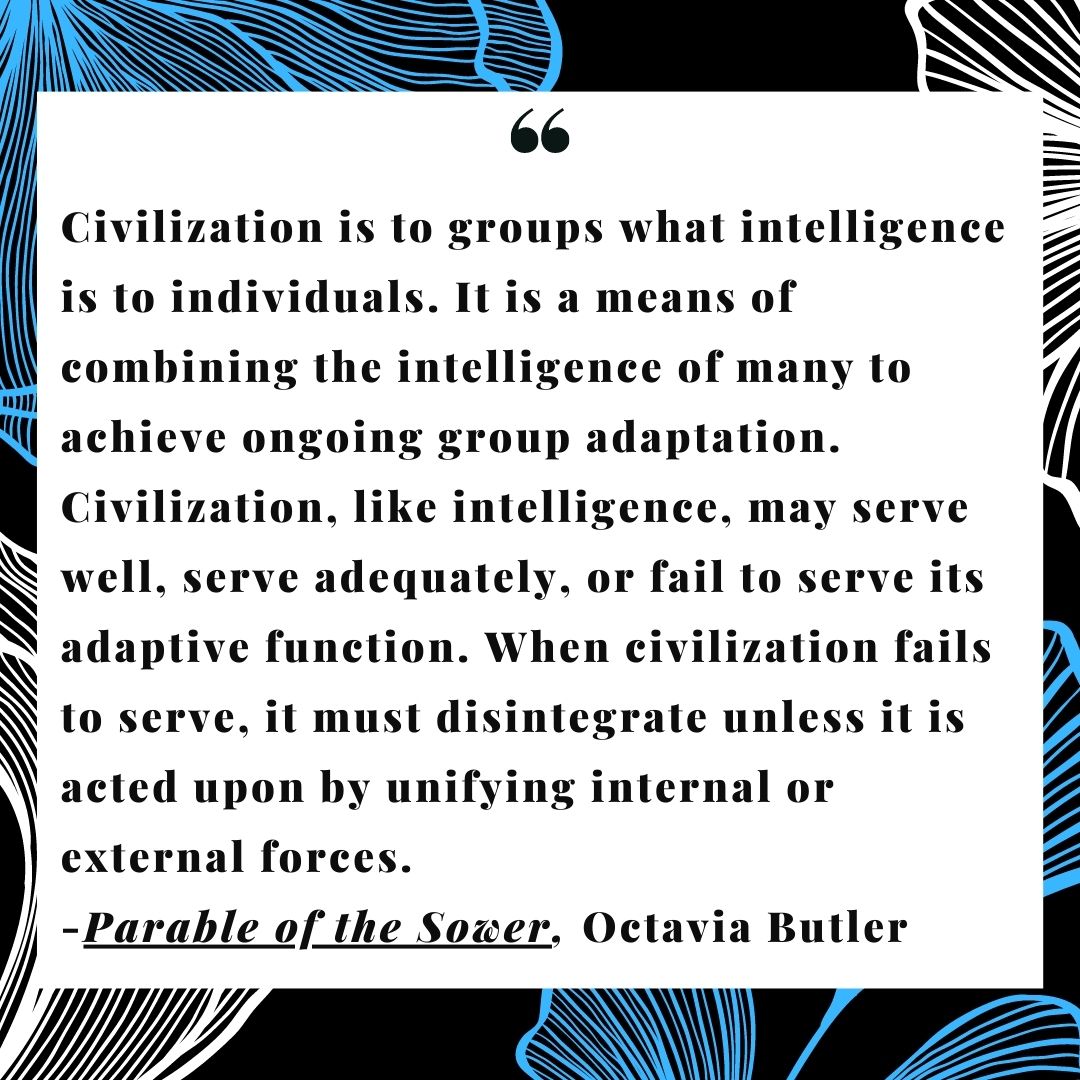On Emerging Technologies and AI
We have heard from many educators across the country– even our friend Dr. Slater posted about it– who are struggling to address AI like ChatGPT.
How do we, as anti-racist educators, wrestle with the fundamental flaw in emerging technologies like AI?

We know that AI and ChatGPT are cause for concern for educators, and they should especially be cause for concern for anti-racist educators.
ChatGPT raises questions about plagiarism, ethics, and privacy. We can facilitate reflection and dialogue about intellectual property, data privacy, and compensation.
AI also illuminates issues of racism and bias and misinformation and gaps of access. Basically, artificial intelligence replicates the oppressive systems in place.
In The internet is already racist. AI chatbots are making it worse, Sarah Posner reminds us that “ bias problems plagued tech well before the chatbot craze. In a 2018 book "Algorithms of Oppression,"internet studies scholar Safiya U. Noble exposed how racism was baked into the algorithm that powers Google’s search engine.”
Noam Chomsky writes: “Indeed, such programs are stuck in a prehuman or nonhuman phase of cognitive evolution. Their deepest flaw is the absence of the most critical capacity of any intelligence: to say not only what is the case, what was the case and what will be the case — that’s description and prediction — but also what is not the case and what could and could not be the case. Those are the ingredients of explanation, the mark of true intelligence.” This is the abolitionist conundrum. These machines lack critical thinking.
AI has also been a concern in entertainment with the current WGA and pending SAG-AFTRA strikes. Similar issues around storytelling, racism, and compensation arise. Writer-performer/abolitionist/educator/beader Jana Schmieding (Rutherford Falls, Reservation Dogs, Spirit Rangers) outlines why and how the WGA Strike is an issue of Native Sovereignty. “You think white people have been mis-telling our stories? Wait until AI gets their hands on it!...We need narrative sovereignty.”
As futurists and afrofuturists, we can imagine the world we want to build together. We don’t need to avoid tools like ChatGPT; we need to bring discernment and criticality to how to engage with it. It can be an example machine, it can be an important tool for reflection and its limitations. As Meredith Broussard, Black data scientist writes: “I heard people repeat the same promises about the bright technological future, but I saw the digital world replicate the inequalities of the “real” world.” Essentiallym AI will inevitably replicate (or worsen) the world as it is due to its nature, limitations, and inputs. And we as abolitionists are here to dream of a new world that hasn't been imagined. If we haven't created it how could it be fed into these machines and how could they cocreate it with us?
Chat GPT feeds on what its creators allow it to feed on.
We need to understand what, when, why and who is behind this what is everyday more commonly heard as Artificial Intelligence.
For the exact same reasons that we must be critical of our society, we shall also be critical about what Chat GPT and other AIs are in terms of the “contexts” or sources it feeds on as it would be the limits and guidance to what it can “become”.
In terms of AI, such as Chat GPT, its possible contexts turn out to be those sources and inputs that its creators allow it to feed on. What are those and how can we be sure those include decolonial thinking, anti racist and other crucial epistemics?
Further reading:
- There’s More to AI Bias Than Biased Data, NIST Report Highlights
- 13.7 Cultural Imperialism – Understanding Media and Culture
- Glitch Feminism: A Manifesto a book by Legacy Russell
- Five Ways Racism Manifests in AI-Generated Art
- Artificial Intelligence “Godfathers” Call for Regulation as Rights Groups Warn AI Encodes Oppression
- Guide to Teaching and Learning
How are you and your schools engaging with emerging technologies?

